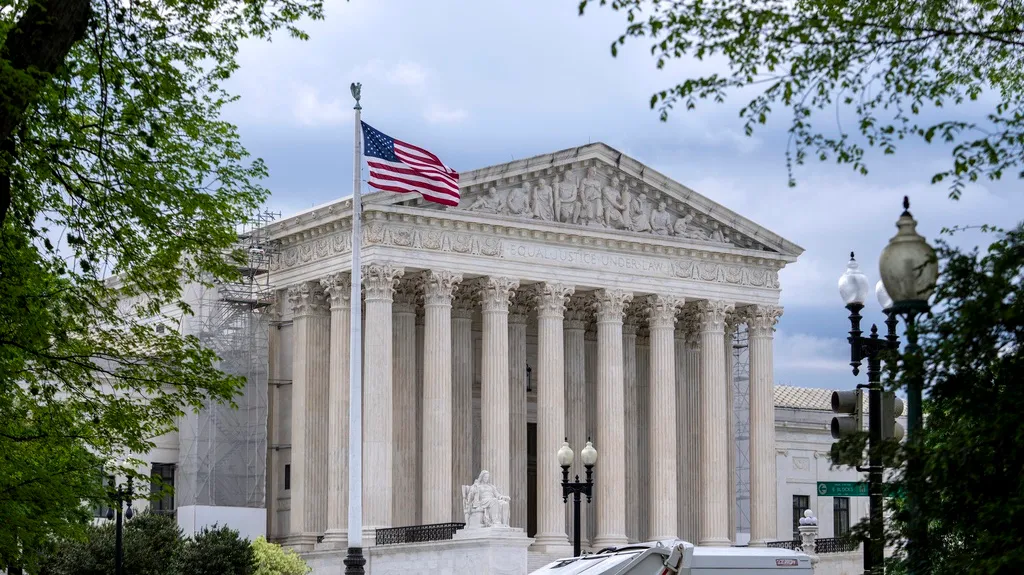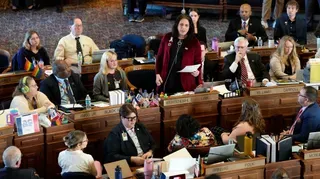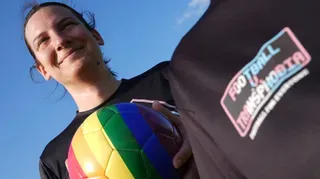January 10, 2013
Boston Offers Resources to Gay Married Fathers
Tony Hobday READ TIME: 5 MIN.
Anonymity among gay men who are also fathers is far more prevalent than one might think, particularly within LGBT communities of Boston areas. Preserving their marriages, among other reasons, forage such covertness. But these men oftentimes find the support they need by using any number of online forums to discuss questions and concerns at-hand and to share experiences with other gay fathers who have had similar experiences. A string of support groups can be found through the Internet and on social networking sites such as Yahoo and Facebook.
"I would guess that maybe 20 percent of our members are in marriages and trying to preserve them. Probably about 50 percent of the guys, when they first come to meetings, are intent on keeping the marriage together, but as they progress along their self-realization journey, most come to realize that would be difficult and, often, working with their wives, end up separating," said Jim, a spokesperson for Boston Gay & Bisexual Married Men's Support Group, who noted that 8-10 regulars attend meetings, with a steady stream of new people coming and going.
BMMG holds semimonthly discussions; membership is not required, but there is a $5 charge per meeting. BMMG participants have almost all been married, according to the website. Most are currently married, some are separated or divorced, some are contemplating divorce and some hope for reconciliation.
Many fathers who use support groups to overcome any number of issues surrounding their coming out to their spouses or children appear to have positive and reaffirming experiences.
"I became a better parent after coming out," posted one GFGB father. "I no longer harbored the internalized feelings of hate, despair and inadequacy that I felt trying to live a doomed role as a straight husband and father. I learned to love myself for the real person that I am. I also nurtured my son to love the self that he was, no matter who that self turned out to be. When Nathaniel had a fever, woke up from a nightmare or had a problem with a friend, my sexual orientation wasn't the issue -- my parenting was."
Another post noted that wherever they are in their journey, most gay dads face a number of high stake issues where being a center stage actor is critical, including the ongoing relationship with one's kids, child support, custody, visitation rights, behavioral ground rules, disclosures about being gay, or anything that relates to the complicated process of building a loving, trusting and secure relationship. The author advocated for working through issues with the other parent.
"You have to be right there at the table working with your former spouse (for most of us) to produce outcomes that are in your kids' best interest. The more this can be a mutual and amicable process, the better, but even if it is not, don't throw in the towel, no matter what. Your kids are watching and they remember," the post read.
One of the oldest (and seemingly highly prone to privacy) support factions is the Gay Fathers Group of Greater Boston, which was founded in 1982. Membership is required with a fee of $25/individual or $35/couple annually. GFGB offers semimonthly meetings and a monthly potluck dinner, among other occasional friendship-based events. While membership demographic is difficult to quantify, a volunteer of GFGB said that primarily the men are there to find ways to end their heterosexual relationships while maintaining a loving and secure commitment to their children.
Additionally, for gay men who are considering becoming a parent through some form of conception, one resource is offered at The Fenway Institute, a leading health organization of Boston. The LGBT Couple and Singles Considering Parenting Group is a weekly meeting, formed under the umbrella of the LGBT Family and Parenting Services, which aims to provide real-world strategies to being a gay parent -- child-rearing, legal statuses, social integration, et cetera. While they do provide support to gay men who wish to conceive a child, generally more women than men attend the meetings, according to group organizer Liz Coolidge.
LGBT-headed families are on the rise and surrogacy is one option that may be gaining momentum. John Weltman, president and founder of Circle Surrogacy, and a gay father through the method, said his agency had helped approximately 80 gay couples and 20 single gay men conceive a child through the use of a surrogate in 2012.
"In terms of being a single parent, I knew it would be time-consuming and it has been, even more than I expected, but I have always been good with planning and organizing my life and that has been helpful," Gene Flanders, 46, a client of Circle Surrogacy who has been a single father to his son for 12 years.
When asked about needing support as a gay father, Flanders said he didn't have any concerns about the gay part of the equation.
"There haven't been any issues with my sexuality, possibly because it's always been treated as a non-issue," said Flanders. "When I became a father there weren't any gay father support groups since not many gay men at that time had done surrogacy. At times, I have answered questions for others interested in pursuing this route to become a parent."
For more info on support, education and advocacy for all facets of gay fatherhood, visit Boston Gay & Bisexual Married Men's Support Group at http://www.bmmg.org/, the Family Equality Council at www.familyequality.org/, Human Rights Campaign Family Project at www.hrc.org/issues/parenting, or the Massachusetts Adoption Resource Exchange at mareinc.org.






